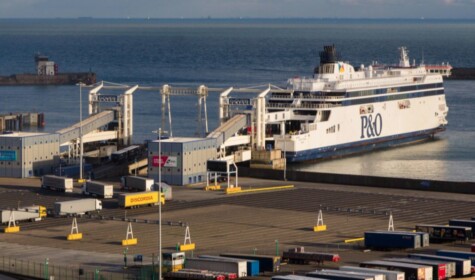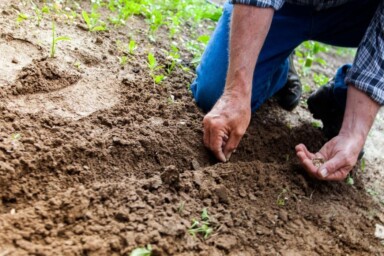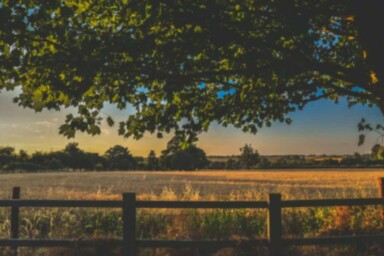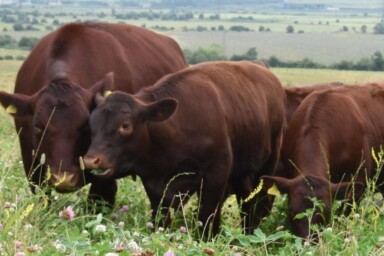So, on 1st January, a new era began with Britain out of the EU single market and out of the customs union.
In regards to trade with the EU, Britain now has ‘third country’ status. The reality of what that means did not become apparent at the borders, there were no queues with thousands of lorries waiting to go through Dover. Instead, reality struck in the offices of exporters and on the forecourts of hauliers where staff tried to get to grips with the new rules. ‘As a third country Britain faces three sets of non-tariff barriers,’ said Alan Swinbank, emeritus professor of agricultural economics at Reading University. ‘There are customs rules, such as rules of origin, there are new online VAT rules and there is the need for phytosanitary and animal health certificates.’
The problem with perishable produce
The first to notice were fisherman and seafood exporters. Instead of loading fresh catch onto lorries which would set off to France or Spain immediately so that fish and seafood would be for sale within 12 hours or so, the exporters now need reams of documents – some forms to be filled out in several languages – and, depending on the produce, different certificates of inspection by an authorised vet.
And trouble wasn’t far behind for meat exports. On 19th January, the news website Politicoreported that tons of meat were stuck in Rotterdam harbour and would now have to be destroyed or dumped in landfill. The article quoted David Lindars from the British Meat Processors Association: ‘There are huge issues with a system that is fundamentally not designed for a short shelf-life food.’
Stuck in the forecourt
The problems with obtaining the right paperwork means that many lorries never even leave for a port. The Road Haulage Association said the number of transports going through British ports fell by 68% ; and on their return journey 65-75% of lorries that had arrived from the EU were empty. The drop in exports is probably not solely due to Brexit, the pandemic may be partly to blame, and many companies tried to beat the changes by fulfilling all export orders by 31st December. The Government does recognise that there are issues with the trade deal. At the beginning of February, the parliamentary environmental and rural affairs committee began an enquiry into the problems fisheries and meat producers, in particular, are facing and a task force is supposed to sort out what the Government continues to refer to as ‘teething problems’.
Some of it can be sorted out, said Alan Swinbank. ‘The process can be streamlined, customs officials may not be clear about how to interpret the rules and be overzealous, but the need for additional paperwork and health certificates will remain and that will add costs.’ Dr Carmen Hubbard, senior lecturer at Newcastle University, agrees: ‘Within a year, people will find it much easier to deal with all of this, but the additional costs for things like customs and health checks, what we call “trade facilitation cost[s]” will stay.’ In an ideal scenario, new technologies can be developed which will reduce the need for in-person checks, she said.
Direct impact on farmers
Right now, it is impossible to say by how much the necessary paperwork and health certificates will increase the costs, but leaving the single market and the customs union has a price. ‘Farmers will be squeezed very heavily,’ said Swinbank. Not only will many find that they can no longer compete on price, they also have to somehow compensate for the loss of the direct payments that they used to receive under the EU’s Common Agricultural Policy. New schemes such as the Environmental Land Management scheme may provide some income, but Swinbank doubts whether farms that were very heavily reliant on direct payments will be able to make up for the overall loss. Carmen Hubbard is a little more optimistic. She believes sheep farmers will still be able to sell fresh lamb into the EU at a profit, once exports run smoothly.
But what about farmers who sell their produce into local or regional markets? Unfortunately, they, too, will get to feel the impact of Britain’s new ‘third country’ status. According to Wicked Leeks, the newsletter published by Riverford Organic Farmers, the vegetable box scheme supplier, British growers import 80% of their seeds and it will be very difficult to source heritage and organic varieties in sufficient quantities. EU exporters may even decide that the additional costs, paperwork and staff time needed to comply with regulations are simply not worth their while and will stop selling to UK customers altogether.
Lots of work and no labour
Another huge problem for the whole agriculture and food sector – farmers, growers, dairy and meat producers, processors, food producers and the restaurant industry – will be a shortage of labour. In the past, tens of thousands of seasonal workers mainly from Eastern European countries picked fruit, tended to cattle and worked in the food processing industry. Since 1st January, work visas are awarded on a points-based system. Knowledge of English and a confirmed job offer are important, but it is near impossible to pass the visa criteria if the job or profession is not on the Government’s ‘shortage occupation list’ – and agricultural jobs, including trained herdsmen and vets, are not listed. British people should fill these vacancies, says the Government, but so far, recruitment efforts haven’t been very successful. British people mostly don’t want to work in agriculture and the productivity of those who followed the ‘Pick for Britain’ appeal was (on average) much lower than that of the seasonal workers from the EU. Alan Swinbank believes that imports of cheap produce and food will continue, therefore British growers cannot expect higher farmgate prices which could help to compensate for increased labour and production costs.
Travel ban for breeding animals
Vets, too, are already in short supply. Last year, more than half of the vets on the Royal College register were EU citizens. The demand for export health certificates means that more vets are needed, but it is near impossible to hire non-British nationals because veterinarians aren’t on that Government ‘shortage occupation list’ either.
Breeding animals and animals such as replacement heifers not only need to be seen by a vet, but can only go through ports with designated holding facilities. On the British side, three such facilities are in a preliminary planning stage. None will be ready by July when Britain starts to fully implement all customs and border controls. Ports in the Netherlands, France and Belgium have already made it known that they have no plans to build animal holding facilities. Farmers can, of course, still get frozen semen, but they will lose out on the genetics of the mother line. The same goes for the export of breeding animals. In 2020, British breeders exported 12,000 sows into the EU and in 2019, the export of live animals was worth £317 million, of which breeding sheep accounted for £22 million.
And then there is Northern Ireland…
A glimpse of what life will likely look like from 1st July, once imports from the EU undergo full customs and border controls, can already be had in Northern Ireland. To uphold the conditions of the Good Friday agreement and secure peace, the EU withdrawal agreement stipulates that the border between Northern Ireland and the Republic of Ireland will remain open and Northern Ireland, therefore, will remain in the single market and aligned with the EU. Alan Swinbank and Carmen Hubbard agree that the EU border running through the Irish Sea is a fact the Government in Westminster will have to live with. Cabinet Office Minister Michael Gove is in negotiations with his opposite number, the EU’s Maroš Šefčovič. In a letter, Gove has asked for a waiver on border checks for another two years. According to a Politico report, ‘Šefčovič offered a tough response, and even flexibility on issues such as seed potatoes and other plant products which cannot be sold from England, Scotland or Wales into Northern Ireland anymore ‘would entail the UK aligning with EU rules’.
So where do we go from here?
What could the way forward look like? Striking trade deals with other countries is one way to compensate for lost trade with the EU, said Carmen Hubbard. She said, according to Trade Secretary Liz Truss, Britain is thinking about applying to join the Trans Pacific Partnership (TPP). In Hubbard’s opinion this would open export opportunities for agriculture, but ‘of course trading with countries half way around the globe would be very different from trading with EU neighbours’. What approach to negotiations the British government will take will depend on a lot of factors, said Hubbard.
And finally, so far, not a lot of attention has been paid to the fact that devolved Governments may not have authority over trade – but one of the decisions of the Scottish Government is to give their ministers the power to stay aligned with EU rules, said Hubbard. If the Scottish Government chooses to do this it would have an impact on the UK internal market. ‘The Government in Westminster needs to understand this and think about the other players here,’ she said.
Alan Swinbank sees changes in farm structures as a consequence of Brexit and the new trade rules, ‘We have a small number of large farm businesses and a large number of small ones. The latter will suffer the most and will be more likely to go out of business.’ Large businesses may be able to expand and intensify production. That will likely have negative consequences for the environment, but may make financial sense if farm income is the sole objective. Smaller, diverse family farms will not have that option. Instead they will have to contend with rising input and labour costs while they lose the direct payments from the EU and are unlikely to make up for any of this through higher farmgate prices. Farmers are very good at finding new opportunities, but many will not be able to survive the double hit of Brexit and the changes the Government’s Agricultural Bill forces upon them.
Photograph: Alexey Komarov






